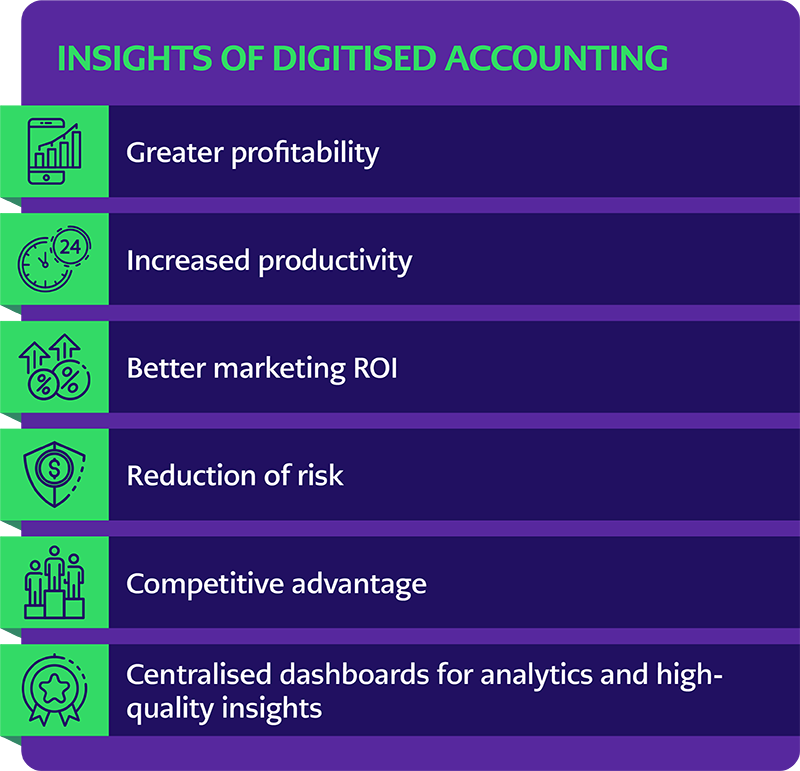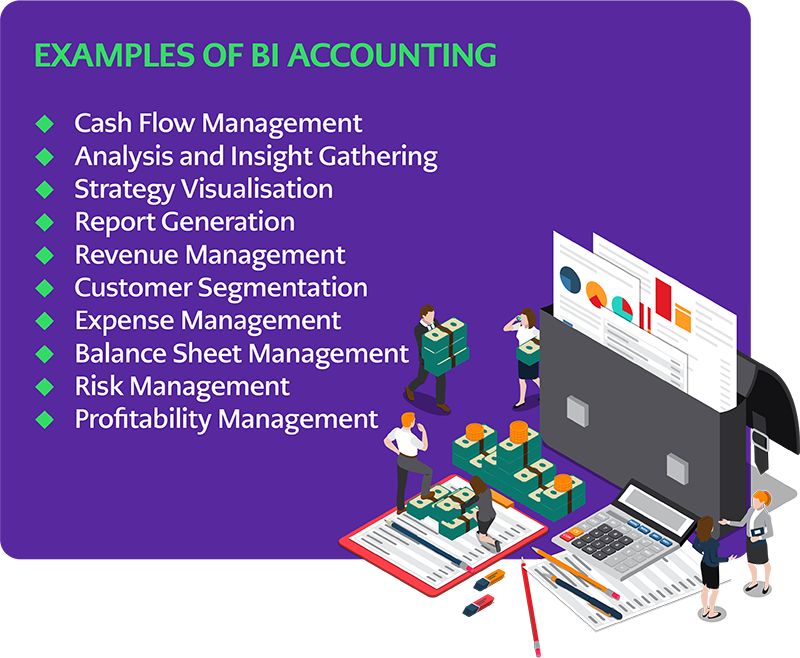

Digital transformation should drive positive outcomes: streamlining processes, harnessing data, or shaping entirely new ways of doing business; this is about uniting every part of the enterprise for a common purpose.
Impactful digitisation of accounting
The new utilities like ICT, advanced software, and fast broadband are the ones that support creating and distributing products in the Infotronics Age. This, coupled with cloud-based applications and industry disruption, is changing work practices and the growth of outsourcing professional services. Digitisation is the process of converting analogue signals or information of any form into a digital format that computer systems or electronic devices can understand.
At its most fundamental level, accounting is the analogue system of recording and summarising business and financial transactions and analysing, verifying, and reporting the results.
The reader will, of course, be familiar with "rear view mirror" accounting. It is where your accountant takes your financial and tax information after your fiscal reporting period is finished and tells you what happened during that period – useful. However, the challenge of always looking backwards is that it's hard to see the way forward!
But what if you could have better data analysis to forecast income, prepare for losses, and plan strategically for the future?
Accounting as we know it has been practised the same way since counting was invented. However, emerging players are digitising the accounting process and leveraging real-time accounting and financial data to get actionable business insights that enhance an organisation's financial performance.
Interestingly, this level of financial insight was previously the preserve of large organisations with a small army of internal accountants pouring over the books. The advent of digitisation means that much smaller players can access and understand their business in real-time and adjust accordingly. In short, the process of accounting has become democratised by being digitised.

One of the real growth areas of accounting digitisation is cash flow management. It goes without saying that the lifeblood of an organisation is cash flow. Interestingly, most small businesses fail mainly because of poor cash flow management.
In a best-case scenario, poor cash flow prevents a business from being able to invest and grow. However, in a worst-case scenario, poor cash flow can put an otherwise successful enterprise out of business. One needs working capital to pay payroll and overheads, which happens before you receive your final payment from your customer. You are in trouble if you lose control of your finances and are unable to pay your expenses when they are due.

By digitising cash flow management, managers can compare and consolidate multiple cash flow statements in just a few clicks. Digitisation allows for fast, simple, error-free analysis of financial statements. It will enable managers to create budgets and 'what-if' scenarios quickly and efficiently.
How is accounting using business intelligence?
Technology and innovation are driving businesses to transform from the traditional way of work to faster and more efficient processes using digitalisation, expecting that this change will contribute to managing risk and improve cost, performance, quality, and safety.
Business Intelligence (BI) is a set of processes, architectures, and technologies that convert raw analogue data into meaningful information that drives profitable business actions. It is a suite of software and services that transforms data into actionable intelligence and knowledge.

BI tools perform data analysis and create reports, summaries, dashboards, maps, graphs, and charts to provide users with detailed intelligence about the nature of the business.
BI directly impacts an organisation's strategic, tactical, and operational business decisions. It also supports digital process implementation and fact-based decision-making. Business Intelligence allows 'Data to Action' pipelines and data storytelling that moves beyond static charts to augmented analytics.

In summary
Defining the dashboards and using business intelligence will allow organisations to have quantitative visual data for all levels of the organisation that promotes the monitoring of the business performance with a reduction in administration effort.
Accounting digitisation helps turn any decision dilemma into business growth by combining accurate accounting and powerful financial insights. It is specifically designed to overcome challenges like staffing, bandwidth, heavy workload, and minimal automation, enabling managers to accelerate business outcomes without adding internal headcount.
Everything can be simplified and automated, from bookkeeping to management reporting and payroll. Accounting digitisation is the 'NextGen' financial experience helping organisations grow top-line revenue with improved bottom-line results.
About the Author
